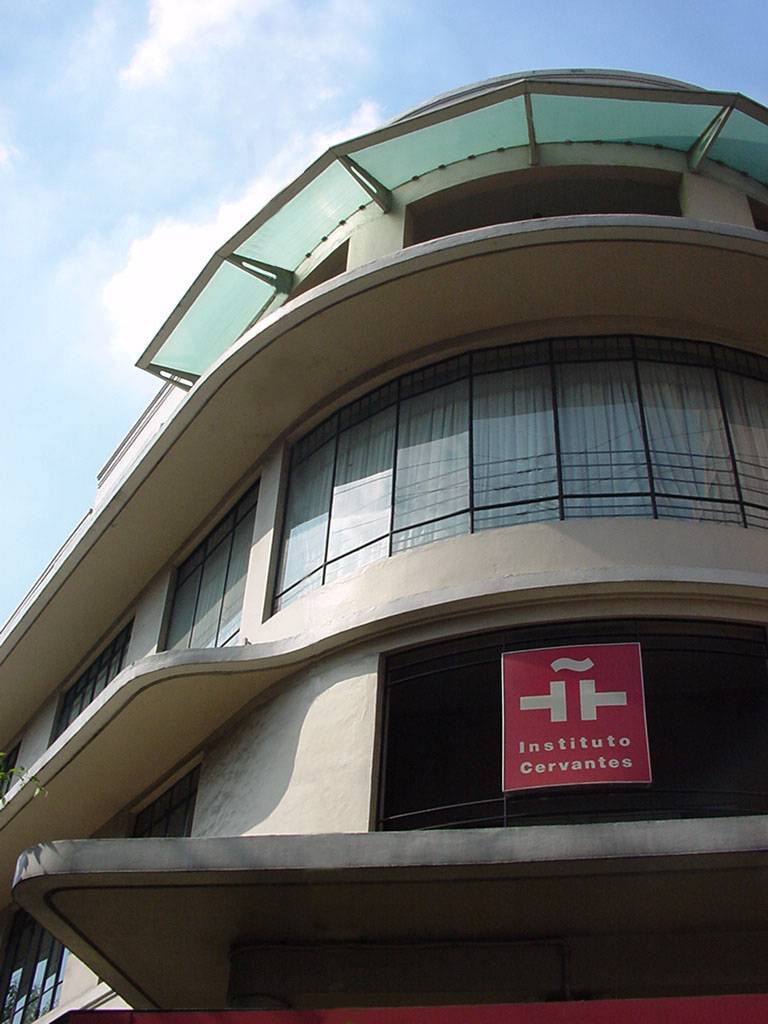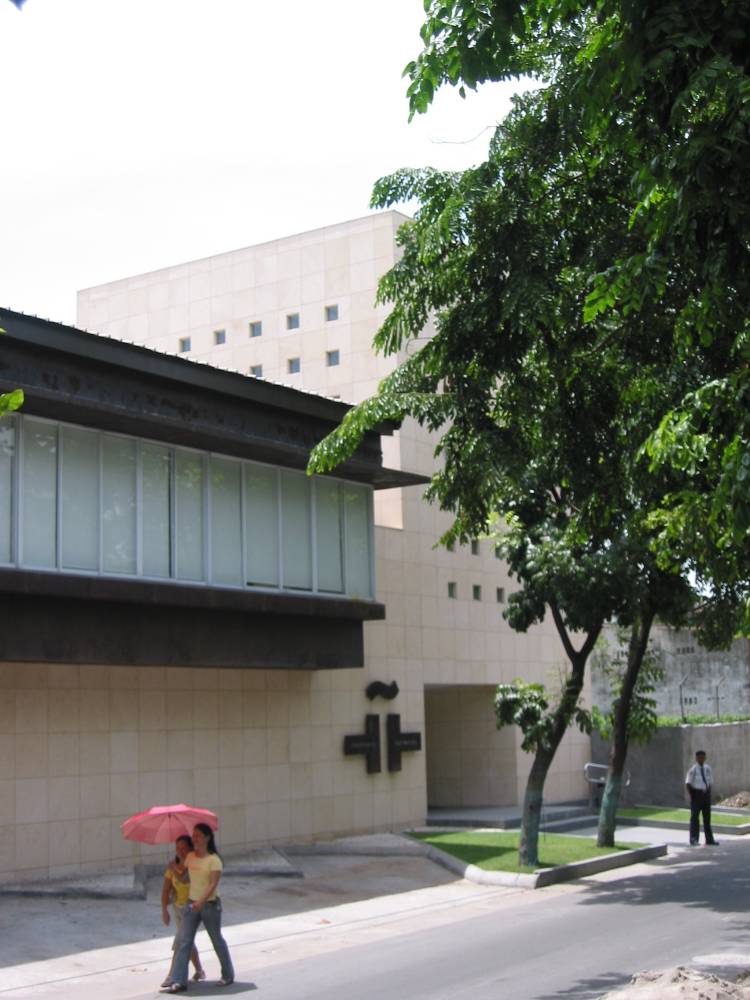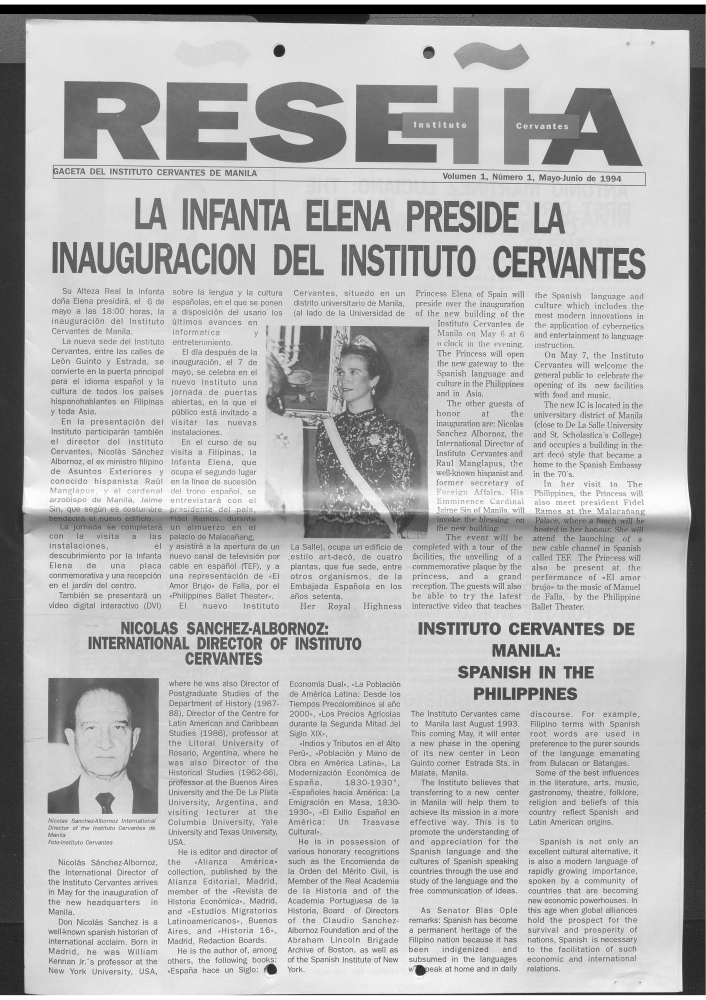Instituto Cervantes marks 30 years in Manila

On May 6, 1994, Her Royal Highness Infanta Elena de Borbón, accompanied by the first director general of the Instituto Cervantes (IC), the historian Nicolás Sánchez Albornoz, inaugurated the then-new headquarters of the Instituto Cervantes in Manila (ICM), in the Mayflower building, in the Malate neighborhood, at the intersection of León Guinto and Estrada streets. The property belonged to a Filipino family of Spanish origin, the Delgados. The Mayflower building, constructed in 1938, had previously housed the United States Agency for International Aid (USAID) and the embassies of Indonesia and Spain.
The IC had been established by Law 7/1991 on March 21, 1991. This law specified the functions of the institution: to promote the Spanish language worldwide and to contribute, along with other Spanish state institutions, to spread the culture of Spain and Spanish-speaking countries. The IC constitutes a fundamental instrument of cultural diplomacy, often referred to as the flagship of Spanish language and its culture.
The Manila center was part of the founding network of the IC, which currently extends to over 90 cities in 45 countries. Like other centers in that founding network, the one in Manila is the successor of the Cultural Center of the Embassy of Spain, which dated back to 1972.
On Aug. 10, 1993, the Cultural Center ceased its functions as such, to operate since then as the IC. Thousands of Filipinos, from all walks of life, have passed through its classrooms in over 30 years of activity. More than 3,000 students take Spanish courses at the ICM every year.
In 2006, the headquarters of the ICM moved to Kalaw Street, to a building owned by the Spanish Casino of Manila, specifically designed to meet the teaching, cultural and administrative needs of the institution. Surrounded by universities and with an LRT station at the door, the center experienced a spectacular increase in enrollments, making it the most active within the IC world network, consistently ranking among the top five since then. It currently holds the second position behind New Delhi.


Extraordinarily welcomed
In the cultural sphere, “El Cervantes” has been extraordinarily welcomed by Filipino society, which considers it its own. The Spanish Festival for Culture and the Arts was held every October from 2001 to 2008, marking a turning point in the impact of the IC as a cultural and social actor in Manila. Its film section, Película-Pelikula, has endured over time, with its 22nd edition taking place in 2023. Thousands of Filipinos attend the screenings to watch Spanish-language films. Additionally, thousands of Filipinos attend the Book Day, which the ICM has been celebrating since 2006 to commemorate the death of Miguel de Cervantes.
In 2023, almost 500 million people have Spanish as their mother tongue (6.2 percent of the world’s population). Spanish is the second most spoken native language in the world, after Mandarin Chinese. The total number of people who can communicate in Spanish—either as a native language or as an acquired language—exceeds 599 million (7.5 percent of the world’s population). It is estimated that in 2023, over 23 million people will be studying Spanish as a foreign language. Spanish is an official language or the first language of 21 countries on three continents, and it is also the official language of the associated state of Puerto Rico in the United States. For over 41 million US citizens, Spanish is the language they use at home.
As director of the ICM in two periods—from 2001 to 2006 and from 2019 to 2024—I want to thank the Filipino people and institutions for the affection and support they have always shown us. I hope that in the next 30 years, cultural cooperation between Spain and the Philippines will continue to be the cornerstone of their bilateral relations. — INQ
By Javier Galván
The author is the outgoing director of ICM

















